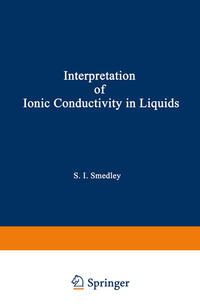
The phenomenon of electrical conductance in liquids is of great impor tance to the technologist, as well as to the theoretical scientist. A glance at Chemical Abstracts will reveal that electrical conductivity can be used as an analytical tool for such diverse substances as concrete and suntan lotion as well as a tool for elucidating the dynamics of molecules in simple liquids. It is a phenomenon that is relatively easily measured, which explains the great diversity of conductance studies that span a range of experimental conditions unequalled in the study of nonequilibrium phenomena. It is clearly impossible for one book, notwithstanding the ability of one author, to cope with so much information or to cover even a significant fraction of the literature on this subject. However, I believe it is possible to bring together in one monograph the mainstream ideas on the interpretation of the phenomenon in relatively simple systems. It is hoped that this book will achieve this result and will provide a concise and coherent account of the interpretation of ionic conductivity in dilute electrolyte solutions, concentrated solutions, low-temperature or glass-forming molten salts, ionic melts, molecular fluids, and fluids of geological and industrial inter est. Most of these topics have been discussed in other books and review articles, but to the best of my knowledge they have not been gathered together in a single monograph.